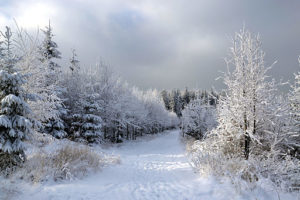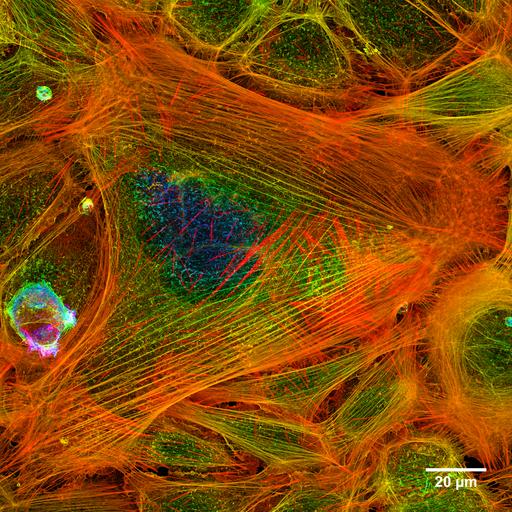
Did you know you can ask a science-related question on Reddit and receive a serious and knowledgeable answer? Go to the link below and ask any question you might think of; or go to Google and look for the Reddit answer. We asked what the effect of freezing is on trees, and here is the first part of a good answer on Reddit’s “AskScience.” To see the other 60% of this response, visit the link below.
Paul Schaberg: On how trees cope with a freeze.
The forum responder on the question of whether trees freeze in winter tapped some research by Paul Schaberg, a University of Vermont professor and researcher associated with the Northeastern States Research Cooperative, stating:
Schaberg’s work suggests three basic ways in which living tree cells prevent freezing.
Change membranes to relocate water
One is to change their membranes during cold acclimation so that the membranes become more pliable; this allows water to migrate out of the cells and into the spaces between the cells. The relocated water exerts pressure against the cell walls, but this pressure is offset as cells shrink and occupy less space.
Convert starch to sugars (antifreeze)
The second way a tree staves off freezing is to sweeten the fluids within the living cells. Come autumn, a tree converts starch to sugars, which act as something of an antifreeze. The cellular fluid within the living cells becomes concentrated with these natural sugars, which lowers the freezing point inside the cells, while the sugar-free water between the cells is allowed to freeze. Because the cell membranes are more pliable in winter, they’re squeezed but not punctured by the expanding ice crystals.
Enter a “glass phase” as cells dehydrate
The third coping mechanism is altogether different. It involves what Schaberg describes as a “glass phase,” where the liquid cell contents become so viscous that they appear to be solid, a kind of “molecular suspended animation” that mimics the way silica remains liquid as it is supercooled into glass. This third mechanism is triggered by the progressive cellular dehydration that results from the first two mechanisms and allows the supercooled contents of the tree’s cells to avoid crystallizing.
Image attribution: This photo of the Silesian-Moravian Beskids (mountain range) in winter was taken in 2014 by Pudelek (Marcin Szala). See the enlarged original, and click the image or click “Open in Media Viewer,” to see the icy details at Wikimedia Commons
Subtitles by Science15.com. Read the rest of this article at www.reddit.com/r/askscience/



